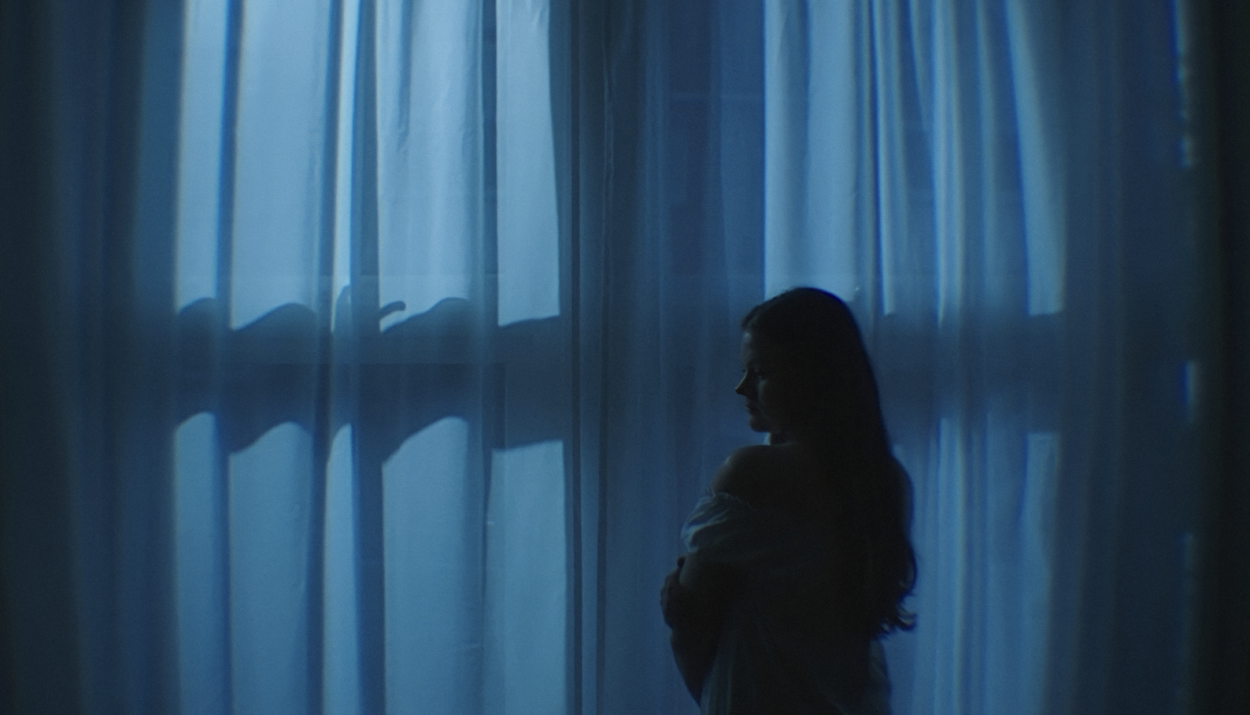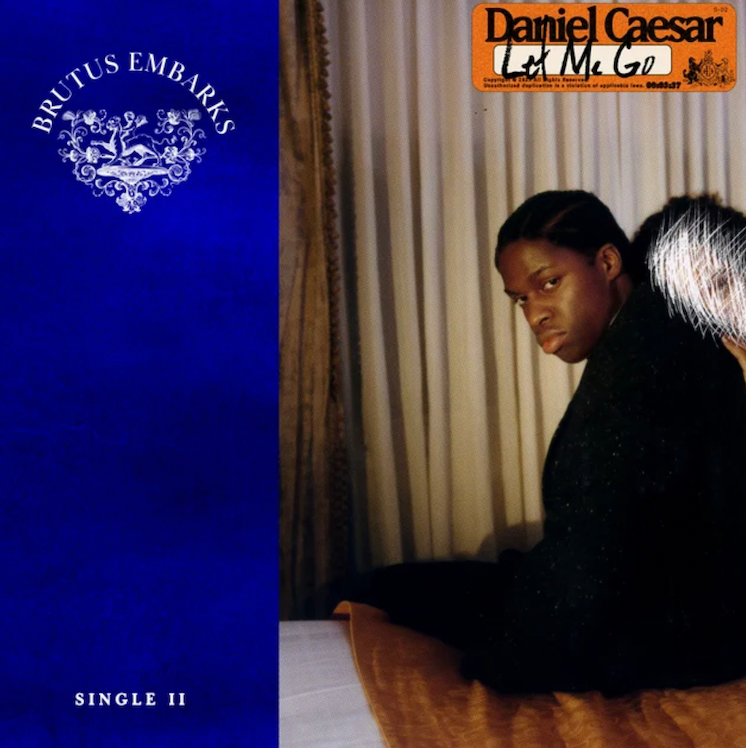From the moment I pressed play on this project, I noticed there’s something heavenly about the way OLI moves through music, not just in her sound but in her presence. Born in New Jersey and raised in London since the age of two, Olivia Masek, known as OLI, embodies a rare duality: her American roots interlaced with the poetic introspection of her British upbringing. Together, these worlds collide in her debut album, “When It All Goes Quiet,” a haunting, cinematic masterpiece that invites listeners to dwell in the delicate space between isolation and greatness.
As OLI told Notion Magazine, this record represents “the stillness before dawn—music for in-between moments when you need to feel everything at once.” And indeed, every track on the record pulses with that sense of suspended time, where vulnerability becomes strength and quiet turns into revelation. Stay with me as I break down the entire album.
The album opens with “Intro,” a lush instrumental overture that sets the emotional tone for what’s to come—strings sweep like ocean tides, faint echoes of distant synths ripple through the air, and a quiet pulse begins to build. It feels like the awakening of dawn before the first light touches the earth: calm, yet full of anticipation.
“I’ve Been Waiting” follows, where OLI’s voice glides through a mist of ambient textures and piano chords that drip like raindrops. It’s a song about suspended longing; the ache of waiting for clarity, love, or closure. Her delivery is tender, but it holds an undercurrent of resilience, capturing that bittersweet space between patience and surrender.
On “Cry,” OLI reveals her cinematic instincts. The production blooms with sweeping orchestral layers that ebb and flow like emotional tides, mirroring her voice as it trembles on the edge of heartbreak. It’s less a song about sadness and more a ritual of release—catharsis wrapped in reverb and reverence.
The title track, “When It All Goes Quiet,” stands as the album’s emotional centerpiece. Here, OLI meditates on the beauty of the silence of finding yourself in the stillness after chaos. The arrangement is minimal, with sparse piano and hushed synths that make every breath she takes feel sacred. “This is the sound of being,” she seems to say, and in her stillness, there’s power.
“Only You” introduces a warmer glow. Layered harmonies and delicate electronic pulses evoke the intimacy of late-night confessions. OLI’s vocals are almost translucent here: tender, affectionate, and glowing with quiet devotion.
“Old Ways” delves into transformation, shedding the weight of the past with a measured, reflective tone. The track’s production intertwines organic strings with subtle trip-hop rhythms, creating a lush bed for her contemplative delivery. It’s one of the album’s most mature and introspective moments.
The melancholic “Cold Hearts” unfurls with haunting synth lines and pulsing bass. It’s a portrait of emotional distance, of people who love but can’t quite reach each other. OLI’s delivery here is ghostlike, more sigh than statement, echoing the loneliness of the lyrics.
“Come Back (Don’t)” is the push and pull of heartbreak distilled into song. The paradox of wanting someone yet knowing their absence is necessary plays out through her voice, at the same time fragile and fierce. The production builds gradually, layering shimmering guitars and aching harmonies until it breaks open like a slow emotional storm.
With “Better Than Before,” hope begins to flicker through the cracks. The instrumentation lightens, and OLI’s vocals bloom with quiet optimism. It’s a reminder that healing doesn’t announce itself loudly; it whispers in the moments when you realize you’ve survived.
“Zara’s Song (feat. Zara Hudson-Kozdoj)” feels like a moment of sisterhood and serenity. The interplay between the two voices—intertwined, mirroring, and supporting each other—creates a transcendent beauty. The song feels personal, a love letter wrapped in sound.
“Float” drifts into ambient territory, almost weightless. The production feels like vapor, synths shimmer, percussion dissolves, and OLI’s vocals glide as if untethered from gravity. It’s meditative, capturing that elusive peace after emotional surrender.
Finally, “Beauty Queen” closes the album with cinematic grace. A slow build of piano, strings, and echoing drums gives way to one of OLI’s most commanding vocal performances. The track explores identity, self-perception, and the search for authenticity beneath external expectations. It ends not with resolution, but with acceptance—a fitting end to an album that revels in quiet revelation.
What defines OLI’s artistry is her control of space and emotion. She doesn’t over-sing—she inhabits the moment. Her voice can be breathy and intimate one second, then unrestrained and cinematic the next. Her words feel deliberate, and each pause intentional.
The production of “When It All Goes Quiet” is lush yet minimal, balancing ambient electronica, sweeping strings, and cinematic textures that shimmer like moonlight. It never overwhelms her—instead, it expands her presence. Every song feels like it could soundtrack a film scene, yet the album as a whole remains deeply personal, like a letter written under candlelight.
This is an album of triumph where silence speaks, and emotion echoes long after the music fades. It’s a debut that unveils a visionary and does not just introduce an artist. OLI’s ability to craft songs that live between stillness and sound marks her as one of the most spellbinding emerging voices in London’s alt-pop scene. In her world, quiet isn’t absence; it’s a state of revelation. OLI doesn’t just sing into silence; she gives it shape, warmth, and meaning. And with “When It All Goes Quiet,” she invites us into that sacred space where emotion, memory, and melody intertwine—and once you enter, you won’t want to leave.
Listen to “When It All Goes Quiet” on Spotify
Follow OLI here for more information






